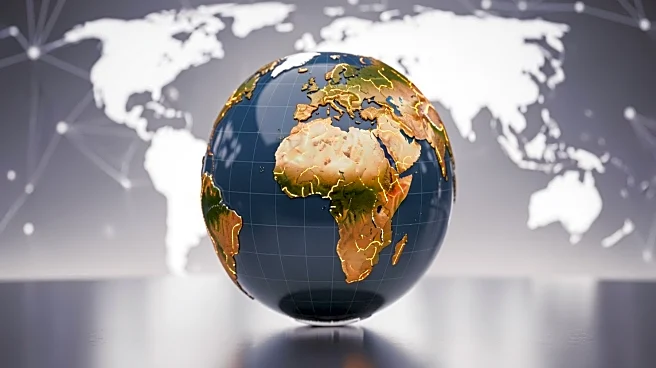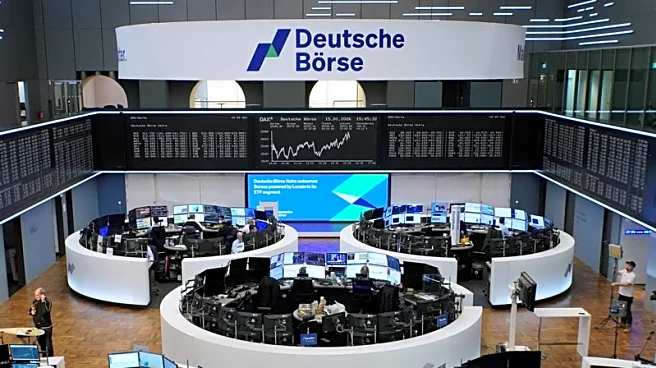What's Happening?
China has initiated a new rare earth licensing regime aimed at expediting shipments, though it is not expected to fully lift existing restrictions. The Ministry of Commerce has informed some exporters
about the possibility of applying for streamlined permits, as reported by industry insiders. These export curbs have been a significant leverage point for Beijing in its trade tensions with Washington, given China's dominance in rare earth production. Despite a temporary pause on restrictions following discussions between President Trump and Xi Jinping, broader controls introduced in April remain in place. The White House has characterized the new licenses as effectively ending China's export controls, but industry insiders suggest that the comprehensive restrictions are still intact. The new licenses, valid for a year, may allow larger export volumes, but acquiring them could be challenging, especially for defense-related users.
Why It's Important?
The introduction of new rare earth export licenses by China holds significant implications for global supply chains, particularly in industries reliant on these materials, such as automotive and defense. China's control over more than 90% of the world's processed rare earths gives it substantial influence in international trade dynamics. The ongoing restrictions have already caused shortages, impacting production in sectors like the auto industry. The potential easing of export controls could alleviate some supply chain disruptions, but the uncertainty surrounding the full scope of these changes continues to pose challenges for companies dependent on rare earth imports. The situation underscores the strategic importance of rare earths in geopolitical and economic contexts, affecting stakeholders from manufacturers to policymakers.
What's Next?
As companies prepare to navigate the new licensing regime, they face the task of compiling detailed documentation required for permit applications. The process is expected to take months, with more clarity anticipated by the end of the year. The industry is closely monitoring developments, particularly regarding the broader export controls that remain in effect. Stakeholders, including businesses and governments, are likely to respond to these changes by reassessing their supply chain strategies and exploring alternative sources for rare earth materials. The situation may also prompt further diplomatic engagements between the U.S. and China, as both nations seek to balance trade interests with strategic considerations.
Beyond the Headlines
The rare earth export licensing changes highlight the complex interplay between trade policy and national security. As rare earths are critical components in defense technologies, the restrictions and licensing requirements reflect broader concerns about technological and military competitiveness. The situation also raises ethical questions about resource control and the environmental impact of rare earth mining. Long-term shifts may include increased investment in rare earth recycling and alternative technologies, as countries seek to reduce dependency on Chinese exports.











